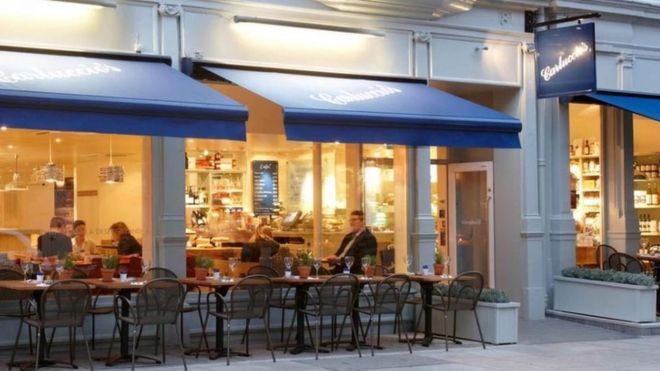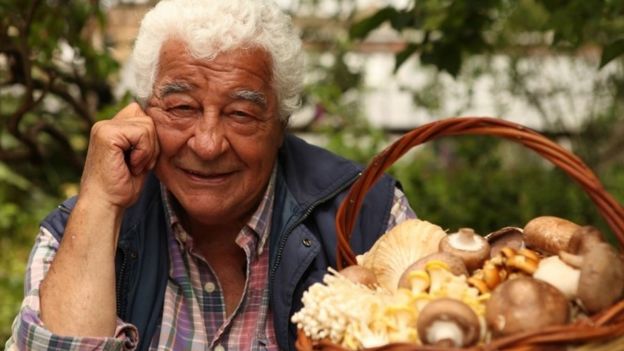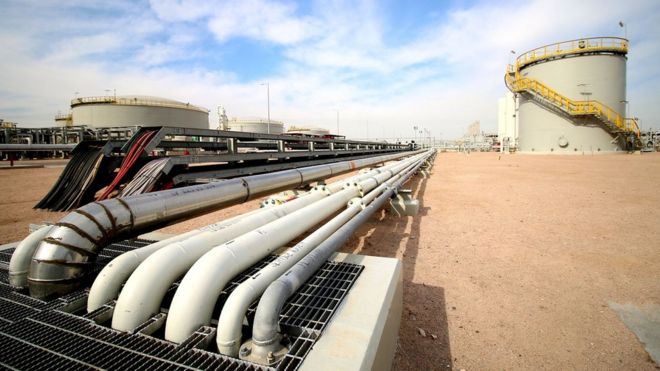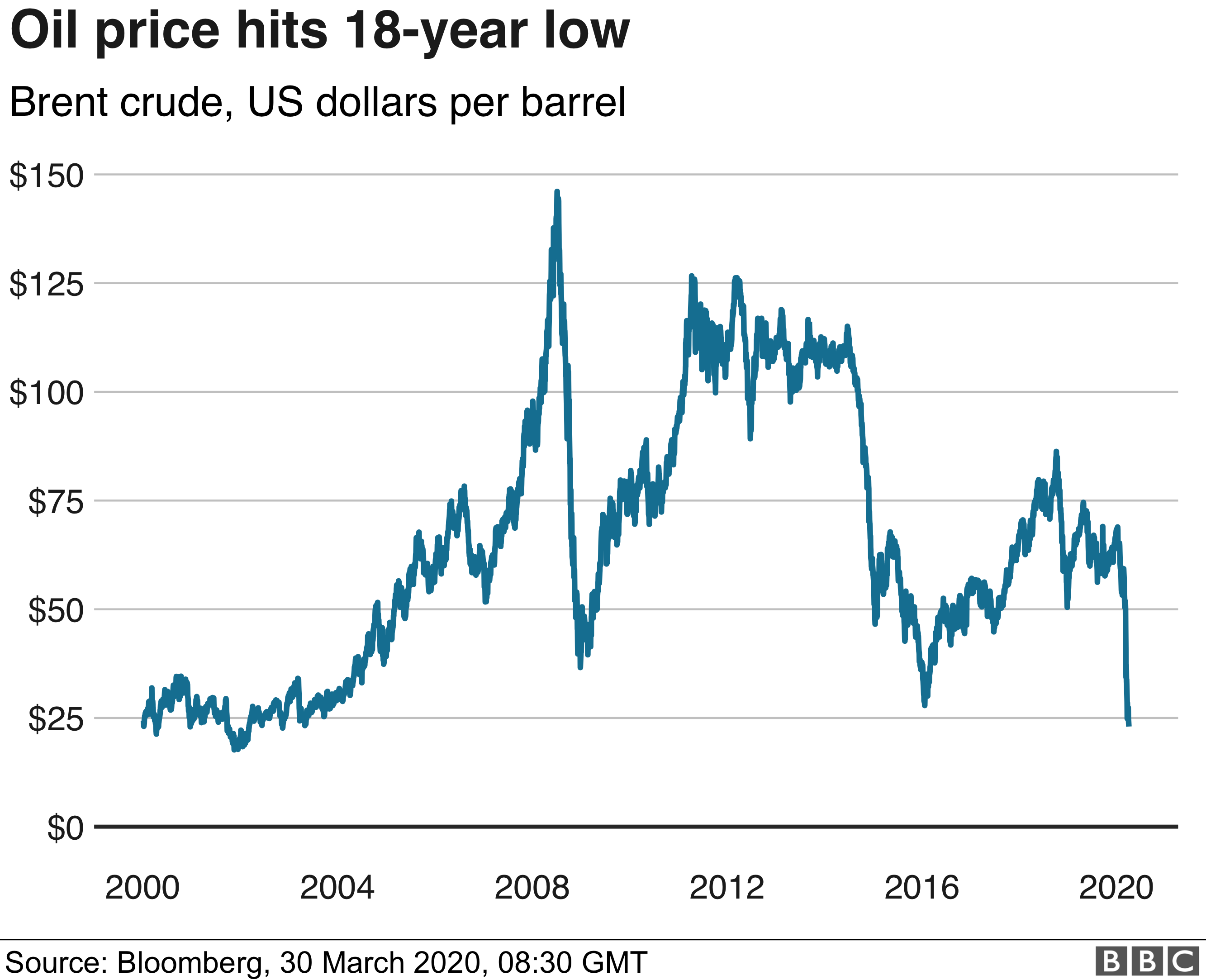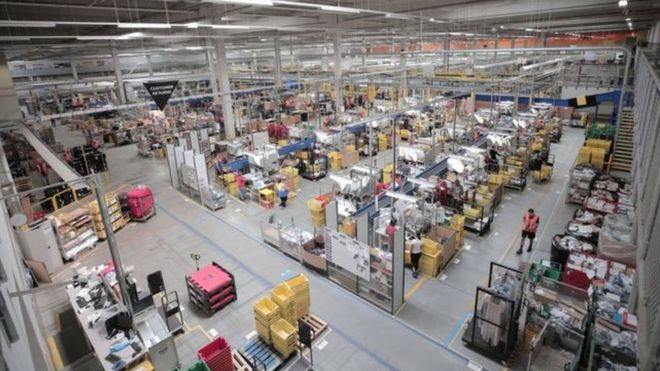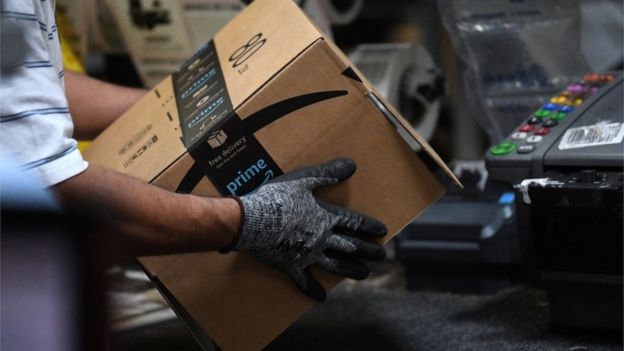'My $60m Weight-Loss App Cured My Personal Pain'
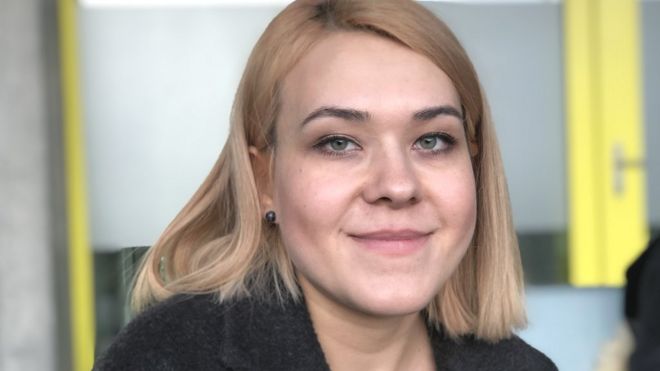
The BBC's weekly The Boss series profiles different business leaders from around the world. This week we speak to Ukrainian entrepreneur Victoria Repa, founder of weight-loss and fitness app BetterMe.
Victoria Repa had an unlikely start in life for a successful tech entrepreneur - she grew up in a tiny village in the Russian-speaking east of Ukraine.
There were only 12 children in her class at secondary school, and resources were limited. "Lessons would only last 20 minutes in winter," remembers the 27-year-old, "because we didn't have any heaters."
The school also didn't have any computers, so the future tech entrepreneur didn't benefit from any IT classes.
However, there were no shortages of books, and her great passion was devouring the ones about business.
Her favorite author was the celebrated US investor Warren Buffett. The main lesson that Victoria absorbed from the so-called "Sage of Omaha" was that to succeed at anything in life you had to know absolutely everything about the subject.
She wanted to one day follow in his footsteps, and be a successful entrepreneur.
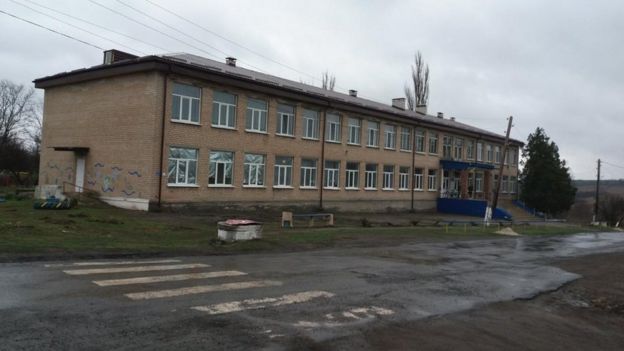 Image copyrightVICTORIA REPA
Image copyrightVICTORIA REPA
Another abiding memory from her adolescence was the "sense of pain" she felt for being overweight.
"I was born into a family where everyone always had excess weight," she says. "My mother always told me 'you can do nothing, it is our family problem, and that's it'."
But as Victoria progressed through her teenage years she came to feel that she could do something about it. And that if she was successful it might make her happier.
Looking back, she says it was this experience that first got her thinking about one day creating a business around fitness and wellbeing.
"For me it became like a mission, to create tools for people to find their ideal state of body and mind."
Yet in her small Ukrainian school, such a mission seemed far-fetched. And so she put it to the back of her mind. After excelling in her exams, she did a general degree at her local university - Donetsk National. She then won a fully-paid scholarship to study business and financial economics at Kyiv School of Economics in the Ukrainian capital.
With most of her peers graduating into secure, well-paid jobs, Victoria initially followed the crowd. She took a position in the finance department of consumer goods giant Procter & Gamble.
The job brought financial benefits that her parents could only have dreamed of. Yet Victoria didn't feel fully satisfied.
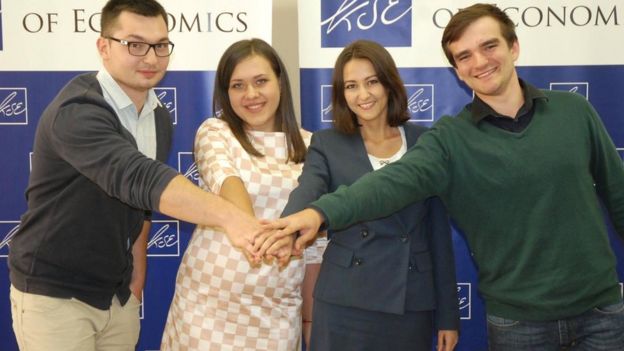 Image copyrightVICTORIA REPA
Image copyrightVICTORIA REPA
She remembered the plans she had at school to follow in the footsteps of her business heroes, and build a huge company from scratch. She didn't want to continue to be just a corporate employee.
This was in 2016 when she was 24. "I didn't have a family to support, so I thought 'I'm young, I can still take risks'," she says.
By then the massive growth in smartphone use was, of course, clear, with the app market offering a host of opportunities for start-up businesses.
So Victoria decided to leave her safe and secure job to try to fulfill her childhood ambition.
She wanted to build an app that would both help people lose weight, and help heal the pain she had felt as a child. Following Warren Buffett's advice, she was entering a market she understood.
Basing herself in Kyiv, she joined forces with her co-founder Vitaly Laptenok. He had expertise in creating video content for social media marketing campaigns.
While the Ukrainian capital is home to software companies such as Epam, Luxoft, and Global Logic, who do outsourcing work on behalf of multinational companies, it doesn't have a developed tech start-up tech scene.
 Image copyrightBETTERME
Image copyrightBETTERME
But while Victoria and Vitaly didn't have an ecosystem of nimble start-ups to lean on, in terms of reaching their desired market, their geographic location was not a problem. Thanks to social media, and Apple's App Store and Google's Play Store, they knew they could reach customers around the world.
So, noticing that fitness and wellbeing content was gaining huge traction on sites like Instagram, particularly in the US, they set about drumming up interest in the first iteration of their app, which was called BeautyHub.
However, still finding their feet, it fell flat. This didn't faze Victoria, who had picked up another bit of advice from business books - "fail fast, and fail cheap".
As products go, apps don't come with many overheads. If they die a death, you can quickly move on, she says.
It was in 2018 that her and Vitaly's app, by then called BetterMe, started to enjoy success. Offering personalized fitness and diet courses, user numbers began to rise strongly thanks to positive word-of-mouth.

More The Boss features:
- 'I bought a winery and it caused a US-French row'
- Male investors didn't get my billion-dollar idea
- The tech boss who lost more than a billion
- The friends helping people divorce without lawyers
- The boss put an end to empty homes

Today, despite strong competition from rivals such as MyFitnessPal, My Diet Coach, and Lose It, BetterMe's five sister apps have now been downloaded more than 40 million times.
It has 500,000 paying subscribers, around 80% of whom are women, and annual revenues of more than $60m (£51m). It has main offices in Kyiv and Cyprus.
Lauren Ryan, a leisure analyst at research group Mintel Leisure, says that what has helped boost the popularity of BetterMe, and other health and fitness apps, is the high price of gym memberships.
"The cost of membership fees and busy working lifestyles, mean gyms are not a feasible option for many," she says. "[So] demand cost-effective 'pocket personal trainers' as grown.
"And 16-34s are the most interested in digital fitness products, indicating that the trend is here to stay."
As BetterMe continues to grow, Victoria says she has gone from being a "chief everything" type of chief executive to now being able to stand back a bit, and let her 80-strong workforce get on with things.
While the success of the app has made her feel much better about herself, she says that what gives her the greatest satisfaction from her job is users posting pictures to demonstrate their weight loss.
"Before and after pictures mean more to me than revenue graphs," she says.




